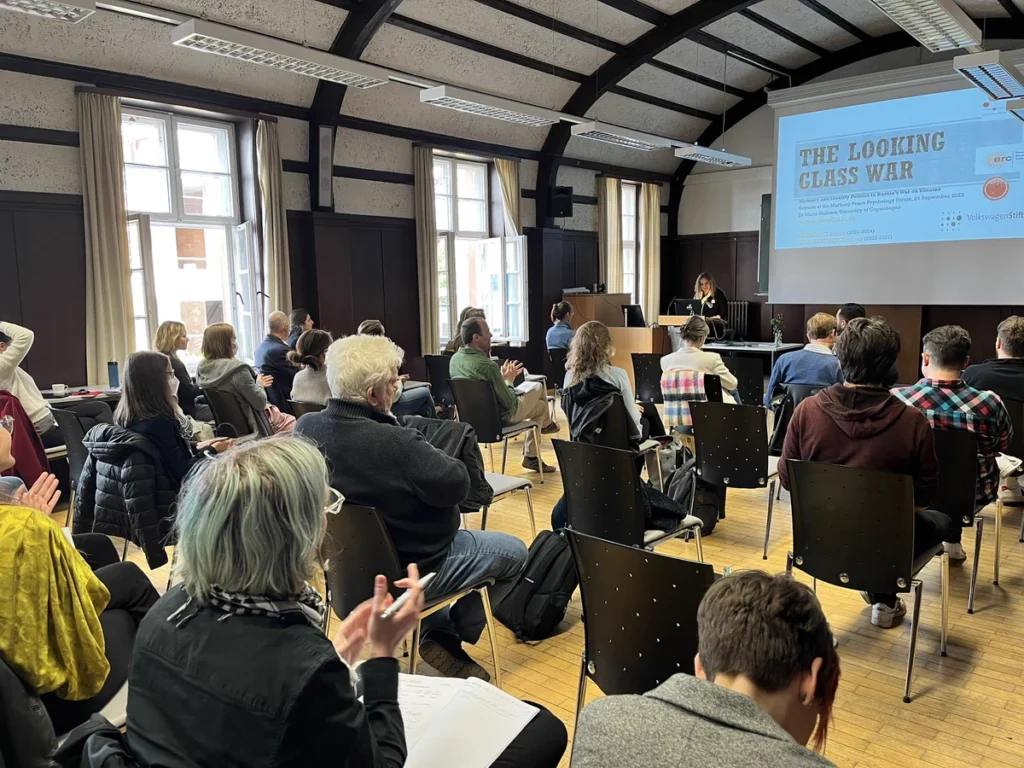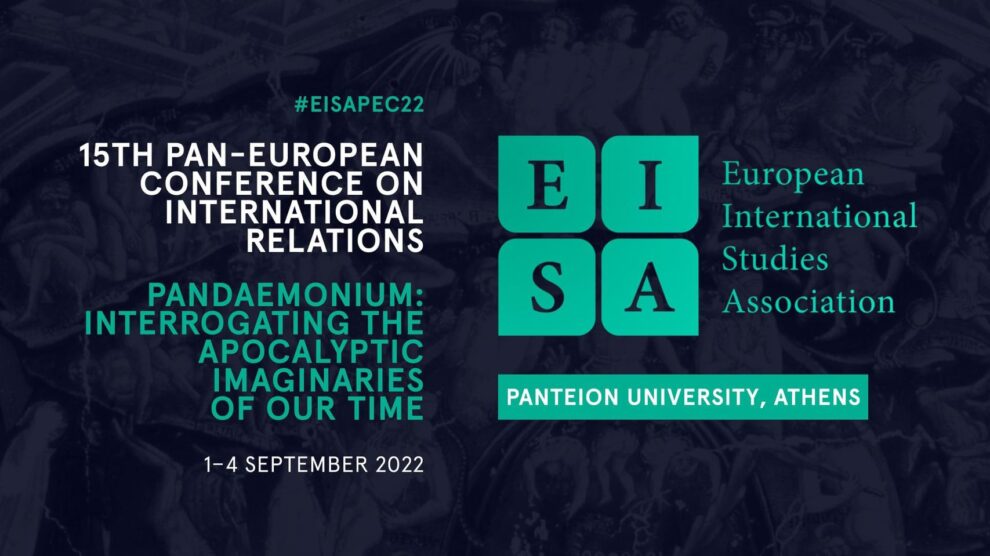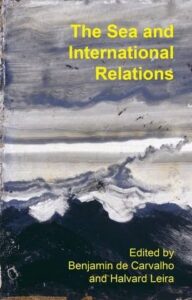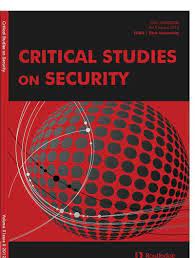Month: August 2023
Maria Mälksoo NORMEMO autumn 2022 guest lecture, 10 Nov 2022
This invited lecture at the University of Tromsø investigates how memory laws that regulate the legitimate frames of remembering the past of righteous and perpetrators function as devices of deterrence in states’ (inter)national memory politics. I conceptualize mnemopolitical deterrence and assess the aims and sought effects of various memory laws in the Central and East European space.
Engaging deterrence scholarship in International Security Studies and legal studies, the lecture unfolds and contextualizes the international aims, the projected and (thus far) observable effects of the memory laws that criminalize, discipline and punish the accounts of the past deemed undesirable to a particular state identity in Russia, Poland and Ukraine. I argue that besides defining acceptable and (un)desirable boundaries of political subjectivities, punitive memory laws do performative work by signalling political intent to defend a particular “state’s story” of the past in the international sphere.
In their distinct ways, the memory laws of Russia, Poland and Ukraine have emerged as international, not just domestic memory-political dissuasion devices in the manifold contestations over the legitimate remembrance and “right” narratives of their respective nation’s role in the Second World War and/or the Holocaust. Mnemopolitical deterrence is illustrative of the ritual logic of action underpinning deterrence practices in state ontological security-seeking.
Maria Mälksoo speaking at the Genealogies of Memory Roundtable, Warsaw, Poland, 28 Oct 2022
Maria Mälksoo keynote at the German Peace Psychology Forum, Philipps-University Marburg, 23-24 Sept 2022
The Looking Glass War: Memory and Identity Politics in Russia’s War on Ukraine

Maria Mälksoo speaking at the ISA-CEEISA webinar on the Russia-Ukraine War, 7 Sept 2022
Maria Mälksoo speaking at EISA PEC2022, Panteion University, Athens, Greece, 1-4 Sept 2022
Maria Mälksoo presented a paper ‘Deterrence by Other Means: The International Politics of Domestic Memory Laws’ at the European International Studies Association’s 15th Pan-European Conference on International Relations (EISA PEC2022) at Panteion University in Athens, Greece on 1-4 September 2022. She also served as a discussant of two panels ( ‘Diplomatic practices of status recognition and the power of audiences’; ‘The Limits of the International’) and participated in two roundtables (‘The problem of difference in IPS: fracturing logics of representation involved in polarising identity and power politics today?’; ‘Bakhtin in IR: philosophy, theory, practice’).

The symbolic space of the sea: mythologising a nation, performing an alliance

This chapter tackles seascape as a symbolic space. It explores the political symbolisation and the symbolic power of the sea via a twofold empirical focus. The first move examines the maritime imagining of a nation-space with the example of Estonia’s ex-president and ethnographer Lennart Meri’s historical travelogue Hõbevalge [Silver White] (1976). This imaginative reconstruction of Estonia’s ancient seafaring history and connectivities with the Baltic Sea region and beyond was a conscious exercise in linking a forgotten Baltic province to the mental map of a Nordic-Baltic region. Silver White provided a national mythology for a small nation which was denied an autonomous political present and future as part of the Soviet Union. As a second move, the chapter looks at the emerging maritime posture and posturing of NATO in the Baltic Sea region. Proceeding from Catherine Bell’s understanding of ritualisation as a culturally strategic way of acting in the world and exercising power, NATO’s maritime presence in the Nordic-Baltic space emerges as a case of ritualised performance of deterrence towards Russia. In both instances of cultivating a national mythscape via the sea and performing a multinational military alliance via exercising extended maritime deterrence, the Baltic Sea emerges as a crucial arena for creating and enacting political subjectivities and communities in world politics.
A ritual approach to deterrence: I am, therefore I deter

How can ritual help to understand the practice of deterrence? Traditional deterrence scholarship tends to overlook the active role of deterring actors in creating and redefining the circumstances to which they are allegedly only reacting. In order to address the weight of deterrence as a symbol, collective representation and strategic repertoire, this article proposes to rethink deterrence as a performative strategic practice with ritual features and critical binding, releasing and restraining functions. I posit a ritual account of deterrence to better grasp the performance, credibility and the presumed effect of this central international security practice. An understanding of deterrence as a ritual-like social practice probes the scope of rational deterrence theory, replacing its ‘I think, therefore I deter’ presumption with a socially and politically productive ‘I am, therefore I deter’ logic. Drawing on the example of the North Atlantic Treaty Organization’s enhanced Forward Presence, the proposed conceptualization of extended deterrence as an interaction ritual chain in allied defence, solidarity and community-building offers novel insights about the deterrence and collective identity nexus. Extended deterrence has much more than deterrence at stake: how an alliance practices deterrence tells us more about the alliance itself than about the nature of threats it responds to. The tripwire posture of the enhanced Forward Presence highlights the instrumentality of ritualization for mediating ambiguity in extended deterrence.
Rituals of world politics: on (visual) practices disordering things

Rituals are customarily muted into predictable routines aimed to stabilise social orders and limit conflict. As a result, their magic lure recedes into the background, and the unexpected and disruptive elements are downplayed. Our collaborative contribution counters this move by foregrounding rituals of world politics as social practices with notable disordering effects. We engage a series of ‘world pictures’ to show the worlding and disruptive work enacted in rituals designed to sustain the sovereign exercise of violence and war, here colonial treatymaking, state commemoration, military/service dog training, cyber-security podcasts, algorithmically generated maps, the visit of Prince Harry to a joint NATO exercise and border ceremonies in India, respectively. We do so highlighting rituals’ immanent potential for disruption of existing orders, the fissures, failures and unforeseen repercussions. Reappraising the disordering role of ritual practices sheds light on the place of rituals in rearticulating the boundaries of the political. Rituals can generate dissensus and re-divisions of the sensible rather than only impose a consensus by policing the boundaries of the political, as Rancière might phrase it. Our images are essential to the account. They help disinterring the fundamentals and ambiguities of the current worldings of security, capturing the affective atmosphere of rituals.
Konsekvenserne af den russiske krig i Ukraine for afskrækkelsen i Østersøregionen

Mälksoo, Maria (2022) Konsekvenserne af den russiske krig i Ukraine for afskrækkelsen i Østersøregionen. In: Efter freden: Ukrainekrigens betydning for dansk og europæisk sikkerhed (edited by Kristian Søby Kristensen and Niels Byrjalsen). Copenhagen: Centre for Military Studies, University of Copenhagen, pp. 74-81.